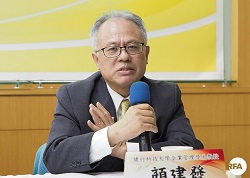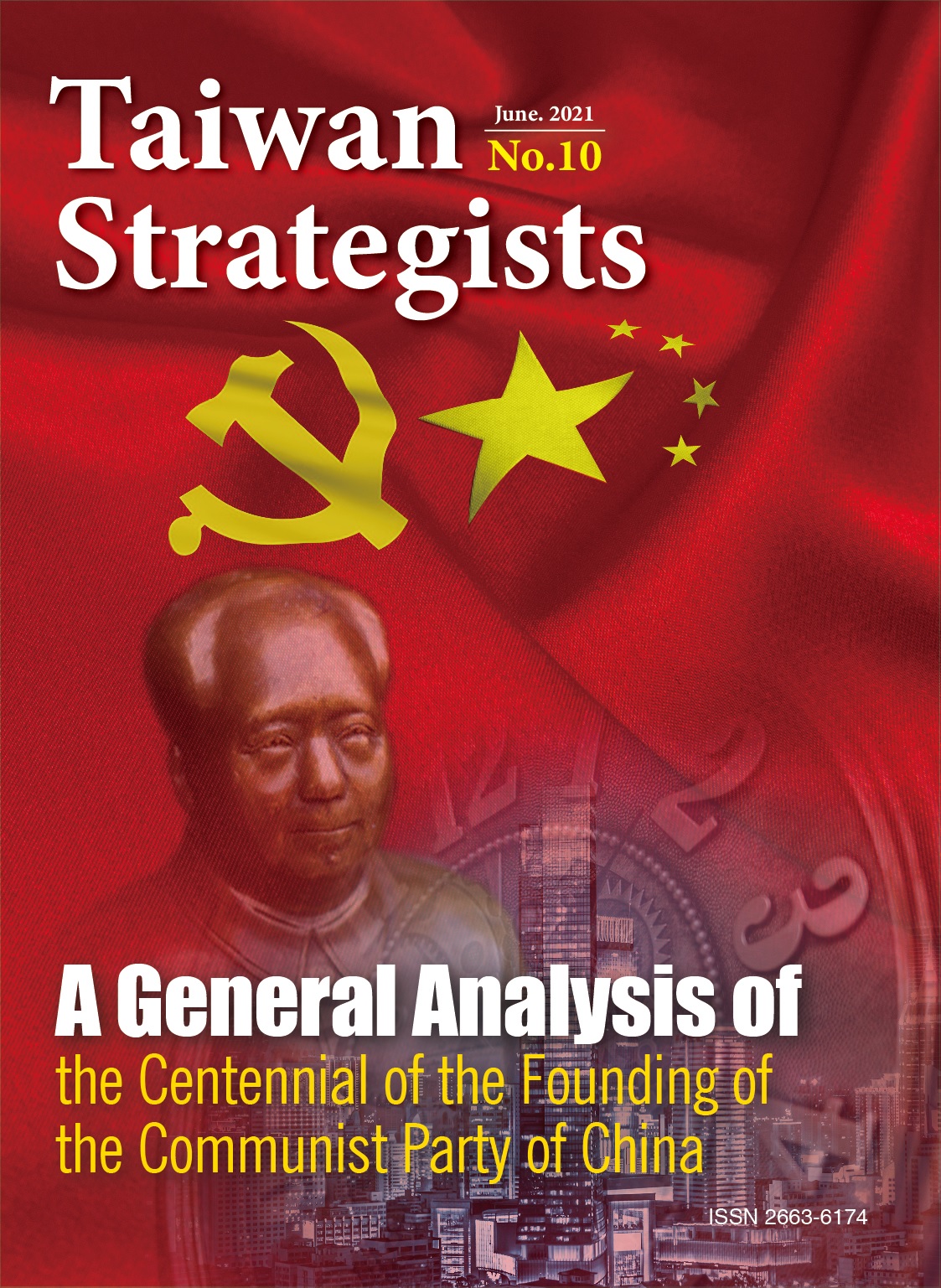Taiwan Strategists No. 10
Promoting the Chinese Dream by Comprehensive Poverty Alleviation? Review of Chinese Communist Party’s Centenary in 2021
Chin-fu Hung
Professor,
Department of Political Science, National Cheng Kung University
July 2021 marks the centenary of the Chinese Communist Party, which was founded in Shanghai in 1921 with the ideal and ultimate goal to realize communism. When Xi Jinping took office in November 2012, he proposed the “Chinese Dream” to pursue the great rejuvenation of the Chinese nation once again under his term of office. To set the people’s wish for a better life is constantly considered and widely propagated as Xi’s top priority to achieve the Chinese Dream. Effectively, the “Two Centenary Goals” are arguably the concrete embodiment of the Chinese Dream, in which the Goals are delicately set to respond to the people’s wish for a better life. While the first centenary goal, which is due in 2021, specifies completely building a moderately prosperous society in all respects, the other goal aims to fully build a modern socialist country that is prosperous, strong, democratic, culturally advanced, harmonious and beautiful by 2049, the year that marks the People’s Republic of China’s centenary. Consequently, this article critically discusses the allegedly successful story of China’s poverty relief that is politically touted as the “great glory of the Chinese people, the Communist Party of China, and the Chinese nation.” It aims to review the contemporary socioeconomic situation under the banner of the Chinese Dream and draw implications for China and international implications in the 21st Century.
Keywords: 100th Anniversary of CCP’s Founding, Poverty Alleviation, Xi Jinping, Socio economic Situations, Chinese Dream
The Past, Present and Future of People’s Republic of China’s Diplomacy
Kuo-cheng Chang
Professor and Deputy Dean,
Center for General Education, Taipei Medical University
China’s diplomacy has become an increasingly important factor in post-Cold War international affairs. In fact, China is more actively extending its power to Central Asia, Western Asia, even Turkey, through its “Belt and Road Initiative,” which has changed the balance of power in the Asia Pacific and Indian Ocean.
This article discusses the features of the People’s Republic of China’s diplomacy. Currently, the PRC’s diplomatic goals has become to contain Taiwan, seek control of international organizations, win other nations’ support, let the world understand the superiority of the Chinese Communist system, and support specially favored countries. In order to overcome China’s progress and threat, I argue that the United States and its allies should face the fact that the PRC’s diplomacy has created its own unique value, which is attractive for many countries in the world. Therefore, the United States should increase its assistance to other countries and re-evaluate its “strategic ambiguity” policy in the Taiwan Strait.
Keywords: The People’s Republic of China’s Diplomacy, Belt and Road Initiative, Massive Propaganda, U.S. Asia-Pacific Policies, Strategic Ambiguity
The CCP’s Views on Its Mission of China’s Unification and Its Thorny Challenges
Jiann-fa Yan
Professor,
Department of Business Administration,
Chien Hsin University of Science and Technology
Unification is one of Beijing’s three major tasks before 2049. China’s decadeslong economic growth is strengthening Xi Jinping’s confidence and ambition to be reelected at the coming 20th party congress as an unprecedented maker of the Chinese dream. Xi announced “one country, two systems with a Taiwan Formula,” but immediately was refuted by Tsai Ing-wen; Hong Kong’s version of the National Security Law was passed, but at the cost of the birth of Hong Kong Autonomy Act, sanctioning China. The U.S.-led democratic allies followed suit. Different from Deng Xiaoping, Xi has followed Mao Zedong’s radical, provocative, and xenophobic path against the U.S.-led democracies. Structurally, U.S.-China relations will continue to stand in a stalemate, and there is no need or incentive for either to trigger a war immediately. As the hostilities between China and the U.S.-led democracies have been structured, they will bring about a devastating catastrophe for China in the long run. For example, Hong Kong is losing its glamour as a free international city. Also, the Taiwan Strait is located at the axis of the First Island Chain, so the free world cannot afford to lose Taiwan again. Taiwan, therefore, has to safeguard itself well and play a constructive role in the U.S.-led democracies.
Keywords: Xi Jinping, Unification, One Country Two Systems with a Taiwan Formula, Hong Kong’s Version of the National Security Law, Hong Kong Autonomy Act





